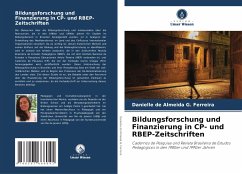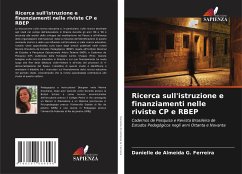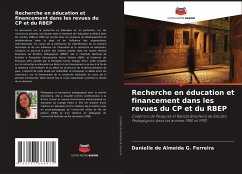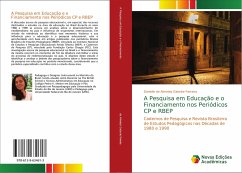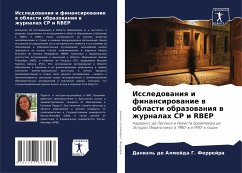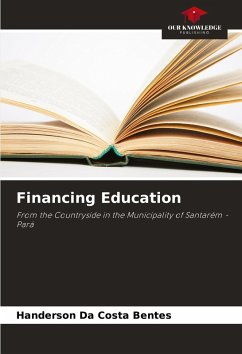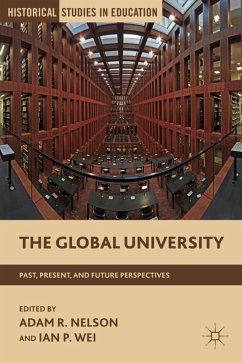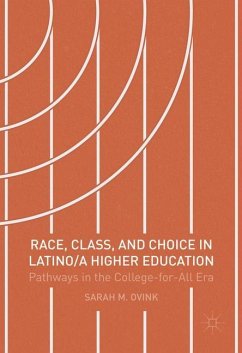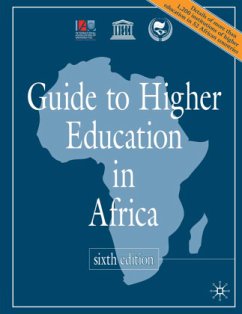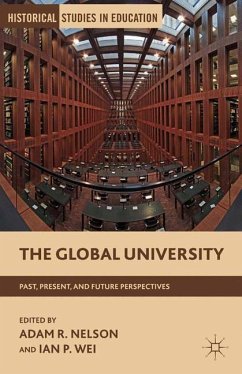
Education Research and Funding in CP and RBEP Journals
Cadernos de Pesquisa and Revista Brasileira de Estudos Pedagógicos in the 1980s and 1990s
Versandkostenfrei!
Versandfertig in 6-10 Tagen
47,99 €
inkl. MwSt.

PAYBACK Punkte
24 °P sammeln!
The discussion about educational research and, in particular, the resources allocated to studies in the field of education in Brazil during the 1980s and 1990s is anchored in analyses of the development of neoliberalism in the country and the influence of international organisations. Because of the relevance of identifying this historical moment and its influence on education and educational research, it is further analysed based on articles published in the journals Revista Brasileira de Estudos Pedagógicos (RBEP), linked to the Instituto Nacional de Estudos e Pesquisas Educacionais Anísio ...
The discussion about educational research and, in particular, the resources allocated to studies in the field of education in Brazil during the 1980s and 1990s is anchored in analyses of the development of neoliberalism in the country and the influence of international organisations. Because of the relevance of identifying this historical moment and its influence on education and educational research, it is further analysed based on articles published in the journals Revista Brasileira de Estudos Pedagógicos (RBEP), linked to the Instituto Nacional de Estudos e Pesquisas Educacionais Anísio Teixeira (INEP), and Cadernos de Pesquisa (CP), published by the Fundação Carlos Chagas (FCC). This investigation into educational research in Brazil and its funding took place at the end of the civil-military dictatorship and the beginning of the process of re-democratisation in the country. The aim of this study is to identify and analyse the debate among researchers about the funding of educational research in the period mentioned, considering that the specialised journal contributes to the study of this area.





